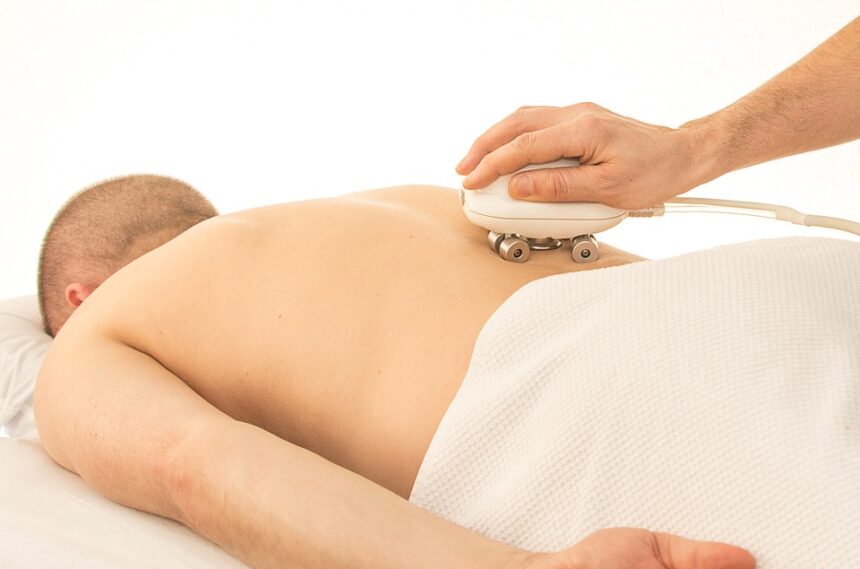An exceptionally well-engineered system of interlinking muscles, ligaments, nerves, joints, and bones should function together. This is what you need to provide stability, strength, and mobility in the lower back or lumbar spine. The complex framework, however, often renders the lower back vulnerable to pain and injury.
When lower back pain remains and threatens to undermine your quality of life, you may need to pursue several treatments for appropriate relief. This is the reason why those experiencing lower back pain consult pain management clinics such as pain relief. Their main goal is to provide pain relief approaches and alternative medicine to enhance the well-being of individuals.
Here are some lower back pain treatments that are somehow unnoticeable or overlooked.
Inner endorphin release
Endorphins are hormones naturally produced in the body. What a lot of people do not know is that endorphins can effectively block pain impulses from processing in your brain. Endorphins can help relieve depression, stress, and anxiety. All of which are correlated with chronic back pain, thereby intensifying the pain. Some activities, like meditation or massage therapy, can enhance your endorphin levels.
Sufficient restorative sleep
Pain is a contributing cause of insomnia, which pertains to difficulty in falling asleep or remaining asleep. Insufficient sleep intensifies back pain as well. This vicious cycle would make it easier for you to obtain restorative sleep. Having adequate restorative sleep is required for the restoration and recovery of energy levels in the body’s tissues. When you have difficulty sleeping, it is necessary to treat pain and its contributing factors. Depending on what disturbs your sleep, your doctor may recommend changes in lifestyle, drugs, or other remedies.
Core exercises
The muscles in your back and abdomen are crucial in protecting your lower spine. Such muscles do not get a proper workout during a regular day. Muscles need to be trained directly through exercise. Many simple exercises can be performed in 20 to 30 minutes as part of your daily routine. Only the essential act of sitting straight on an exercise ball for at least 30 minutes a day can involve your core muscles, especially if you are a beginner.
Brain engagement
Pain therapists have recognized that pain is more complicated than mere sensation. How the brain processes and regulates signals of pain plays a significant part in the perception of the pain.
The positive thing is that you will be able to enhance skills or disregard specific symptoms of pain in your brain. Below are a few approaches that you can employ:
- Effective pain management: Practicing meditation and mindfulness, usually requires deep, guided breathing, and mental concentration. In turn, this can help alleviate pain. It can also help with relaxation. Several free resources are accessible online to become familiar with relaxation and mindfulness approaches.
- Cognitive-behavioral therapy: This form of treatment can help you think positively about your pain or develop new coping strategies.
Improving mind-body skills will go a long way towards ensuring that you gain a degree of control over your pain.
Interesting activities
Continuing back pain will cause havoc on your life, disrupting your valuable relationships, health, and willingness to accomplish tasks both at work and at home. Having things that keep you satisfied will help decrease stress, and even pain can be eased at some point.
Many people say that just having only three aspects that make them feel happy daily allows higher tolerability to pain. This involves a nice cup of coffee or tea, texting an old friend, going for a walk with your dog, or receiving a quick 30-second embrace from a loved one. Anything as easy as a friend’s laughter will activate the feel-good endorphins.
Stretching of hamstrings
Tight hamstrings are a commonly ignored factor in lower back discomfort. If your thigh muscles are excessively hard, your joints and lower back will experience more stress and strain at the same time. Hamstring stretching can be performed cautiously for 15-30 seconds every period, preferably at least twice regularly. Several mild relaxing activities shouldn’t hurt that much.
Cold or hot compress
In terms of minimizing back pain, never neglect the pain reduction through the use of cold or heat packs. Cold compression can aid in reducing pain and inflammation. Several options involve putting ice in a small towel, a frozen bag of peas, or a cold gel pack. Ensure that you have at least one barrier between the ice pack and your head.
Heat therapy tends to boost blood supply and reduce pain. Heat may come in various ways. Trying multiple ways is better to figure out what is most suitable for you. You can take a warm shower or hot bath, relax in a Jacuzzi, or use a heat wrap or heating pad to add warmth to your lower back. In adding ice or a heating pad, restrict applications to at least 15 to 20 minutes with a minimum of 2 hours of rest in between.
Perhaps these unnoticeable remedies will help you seek different strategies to deal with lower back pain effectively and achieve long-lasting relief.







